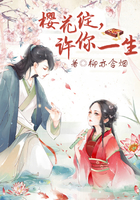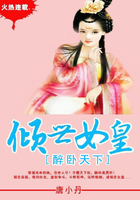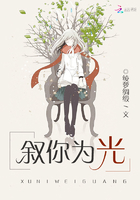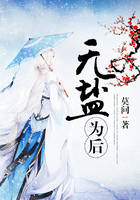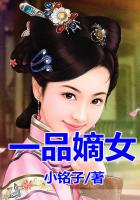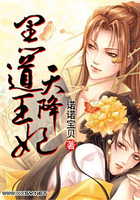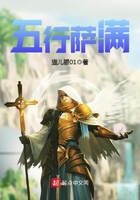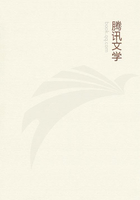THE DELICATE SNOWFLAKES HAD TURNED TO HEAVY cotton balls. They clung to Ming's face, becoming droplets of water. The wind had picked up, and it cut through his jacket, chilling him to the bone.
Ming's mind whirled like a rewinding cassette tape. He remembered a conversation his parents had had on a cold, snowy day like this, shortly before his mother's death.
"If only you had shown more enthusiasm for the Revolution, we might still be in the city!" his mother had said, her knitting needles clicking rapidly.
Bā ba's bitter voice had dropped a pitch. "Oh, really? Then why did they send my colleagues away too? Mao just hates all intellectuals!"
Mother had hushed him, glancing out the window nervously. "Don't say that! You know what happens to people who talk like that. They disappear!"
Ming blew on his numb fingers and rubbed them together to restore circulation. He hurried along the only paved road in the village, heading toward home. Bracketed by Li Mountain to the north and the Wei River to the south, Red Star curved from west to east before tapering off in the foothills.
Snow was starting to encrust the roofs of the gray mud houses that lined the road. The houses were spaced evenly apart, and most had an enclosed front yard. Ming stopped outside one without a fence. Despite the heavy cotton flaps hanging over the door, he could smell the mouthwatering scent of roasted peanuts. The characters Chá Gu?n, 茶馆, teahouse, were painted on a wooden board that hung above the doorway.
Bā ba and Ming often visited the only teahouse in Red Star. Ming enjoyed listening to the elders' stories, which grew more outlandish as the hours passed and the piles of empty plates grew taller. His favorite tales were about tomb robbers, secret traps, and fierce battles. The mystical accounts of the first Emperor and his mausoleum had fueled his passion for history.
Pausing now to inhale the aroma, Ming wished he had one yuán, 元, to buy a bag of roasted peanuts or even soybeans. He peered through the window and saw groups of elderly men huddled around four tables covered with chipped teacups and peanut shells. Next to a small wooden stage, a large tin teakettle sat atop a stove that was three times bigger than the one at Ming's home. A spindly old man, eyes half closed, was playing a song from the revolutionary opera White-Haired Girl on an èr hú, a two-stringed bow instrument. The man standing next to him, who was as thin as a chopstick, was circling his hands in the air in time with the music and singing along.
The debts that crushed the working class will be erased…
Someone gripped Ming's shoulder. Startled, Ming spun around. It was the village carpenter. The wrinkles on the man's grinning face reminded Ming of a dry, cracked riverbed.
"Come inside and tell us about what the Gee brothers brought you!"
Ming allowed himself to be led in. The aromas of warm tea and roasted peanuts washed over him. His hunger intensified.
All the old men in the teahouse looked up at the newcomers.
One thousand years of feudalism are now uprooted and ended…
The singer stopped, his arms held before him as if he were cradling a large watermelon.
The èr hú player opened his eyes. He saw Ming and called out excitedly, "Ming! I heard the Gee brothers found a broken clay soldier from Emperor Qin's tomb. Is it true?"
Ming shrugged. "I don't know."
One of the men sitting nearby broke into laughter, spraying tiny bits of peanut over his table. "Why would Emperor Qin bury a broken clay soldier in his mausoleum?"
"To guard his treasure, you old fool!" the singer called out.
"And why would he need that? Haven't you heard the stories about his mechanical crossbows and his secret traps?" asked the village carpenter as he took an empty seat. "His deadly traps would surely kill any intruders."
Ming briefly felt the urge to tell them about the talking head. Could Shí really have come from the Qin tomb? For a long time he had been skeptical that such an incredible monument could be so close to this small village and had often fantasized about the various ways tomb robbers would be killed by the traps. He wondered: If he and Bā ba ever found the tomb, would Bā ba know how to disable them?
The èr hú player pointed his finger at the crowd. "I have told you people the story many times! There is a vast underground palace, and it's near here!"
The carpenter waved his hands in mock fright. "And a vast terra-cotta army that will kill anyone who breaks in, right?"
The singer stepped off the stage and floated his hand through the air. "Just imagine sailing on Emperor Qin's eternally flowing rivers of mercury!"
"Aī yo! The mercury would kill you long before you got close to it!" The èr hú player clucked his tongue. "I would much rather take a stroll through his orchard of jeweled trees."
"And maybe grab a few jade pears or peaches for your own grave along the way?" teased the carpenter, cracking open a peanut with his teeth.
A few of the men chuckled.
The èr hú player beckoned to Ming. "Come! Let me buy you a bag of peanuts for troubling you to fix my radio again! I couldn't sleep at night without it on."
Ming's stomach grumbled, but he wanted to be polite. He held up his hands. "Oh, it was no trouble at all! I should get home."
The singer piped up, "You're too skinny, Ming! You should eat more." He walked over and offered Ming a small paper bag.
Ming smiled weakly. "I'm fine, really. Thank you!" Before he could back away, the singer stuffed the bag into Ming's pocket.
"Hey, Ming, my alarm clock stopped working," a man with a long white beard called out from across the room. "Could you take a look at it? I brought it with me in case you came by today."
"Sure! I'll give it a try," Ming said warmly.
The men in the room eagerly helped pass the clock to Ming. Behind the dusty glass, a red hen and three yellow chicks fashioned from metal were frozen mid-peck. Ming stuffed it into his bag and walked toward the door.
"Wait! The back of my watch is loose again." A toothless man took a watch from his pocket and held it out to Ming.
"I can tighten it for you now." Ming took the watch and fished out a small screwdriver from his pocket. A few moments later, he handed the watch back to the man. "That should fix it!"
"Thank you, clever boy! Say hello to your father for me."
"You're welcome! I will."
Ming liked these old men. Unlike the Gee brothers and Teacher Panda, they were always nice to him. When he fixed their broken watches, radios, and flashlights, it made him feel useful and happy, especially when Bā ba told him how proud he was of him.
Ming hefted his schoolbag. "Bye now!"
As he backed out into the cold, all the old men waved to him.






